Jan 2, 2025
10 Innovative Schools Changing Education
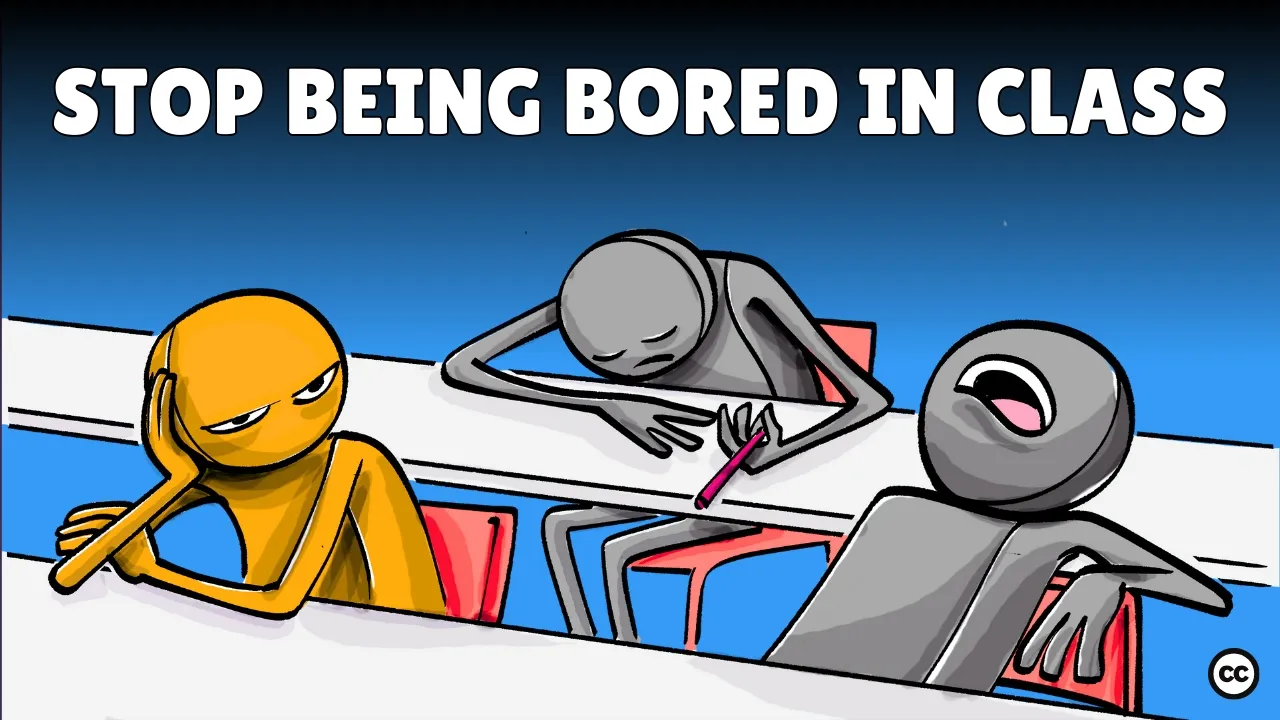
If you went to a regular school and received a regular education, it's likely that you felt an acute sense of boredom quite regularly. This is the reason we spent years researching the world of learning and wrote “The Unschoolers Educational Dictionary,” which includes 16 alternative school movements that offer bored boys and glum girls some hope. Here are 10 types of education you might have wished to know about earlier.
1. Forest school
Forest schools represent a new educational movement from Northern Europe that focuses on holistic education for young children, who spend the entire day outside—regardless of the weather. The approach encourages exploration, risk-taking, and the practice of physical activity. Forest schools are typically anything but boring.
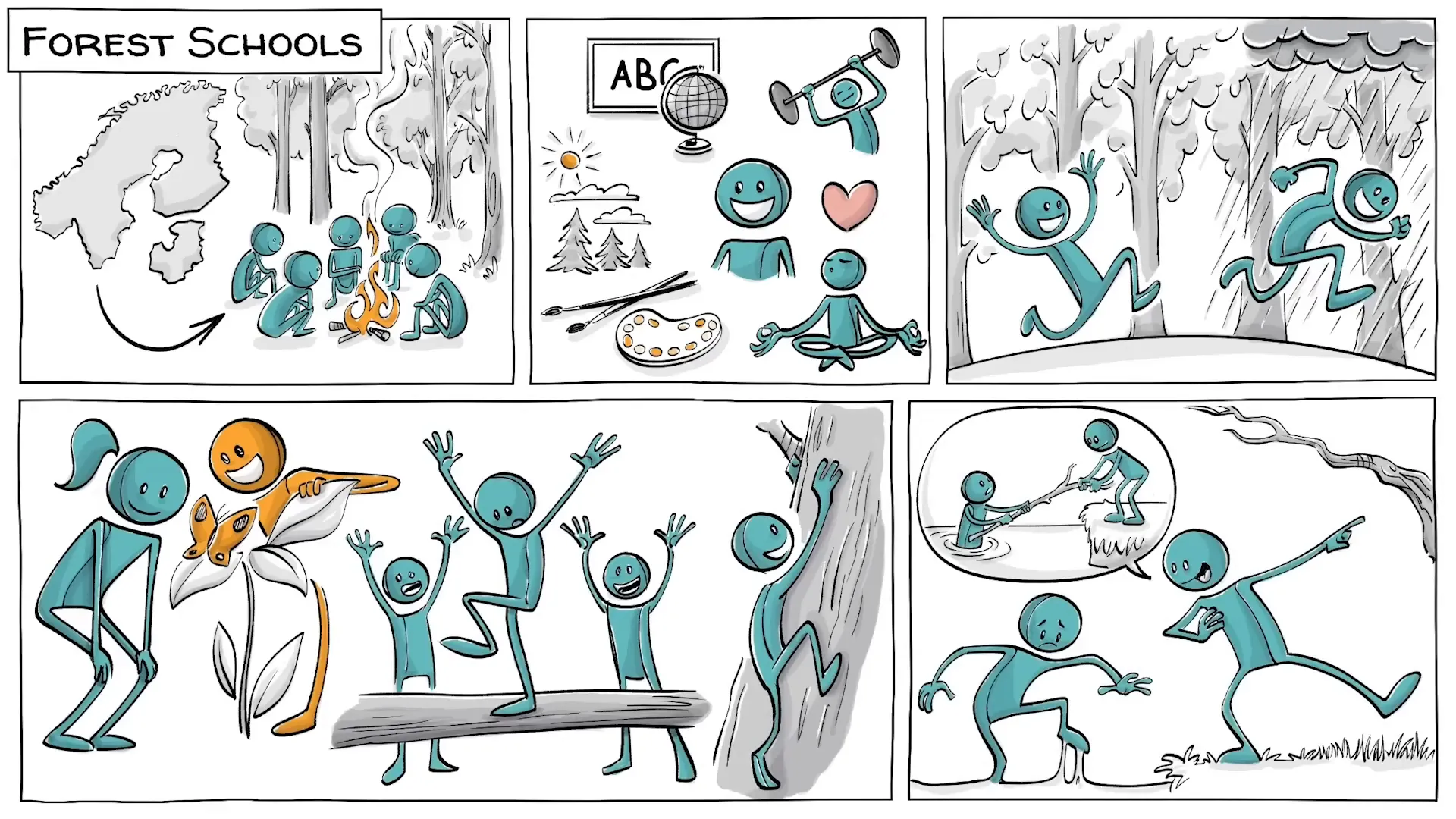
2. Montessori education
A Montessori education fosters a child’s natural curiosity and desire to learn. Classes are typically mixed age and the rooms are open so children can freely explore and move around. Students work independently in 3-hour blocks—often with specific learning materials. Teachers act as guides, encouraging the children in their self-directed learning. Most Montessori schools focus on programs ranging from kindergarten to middle school.
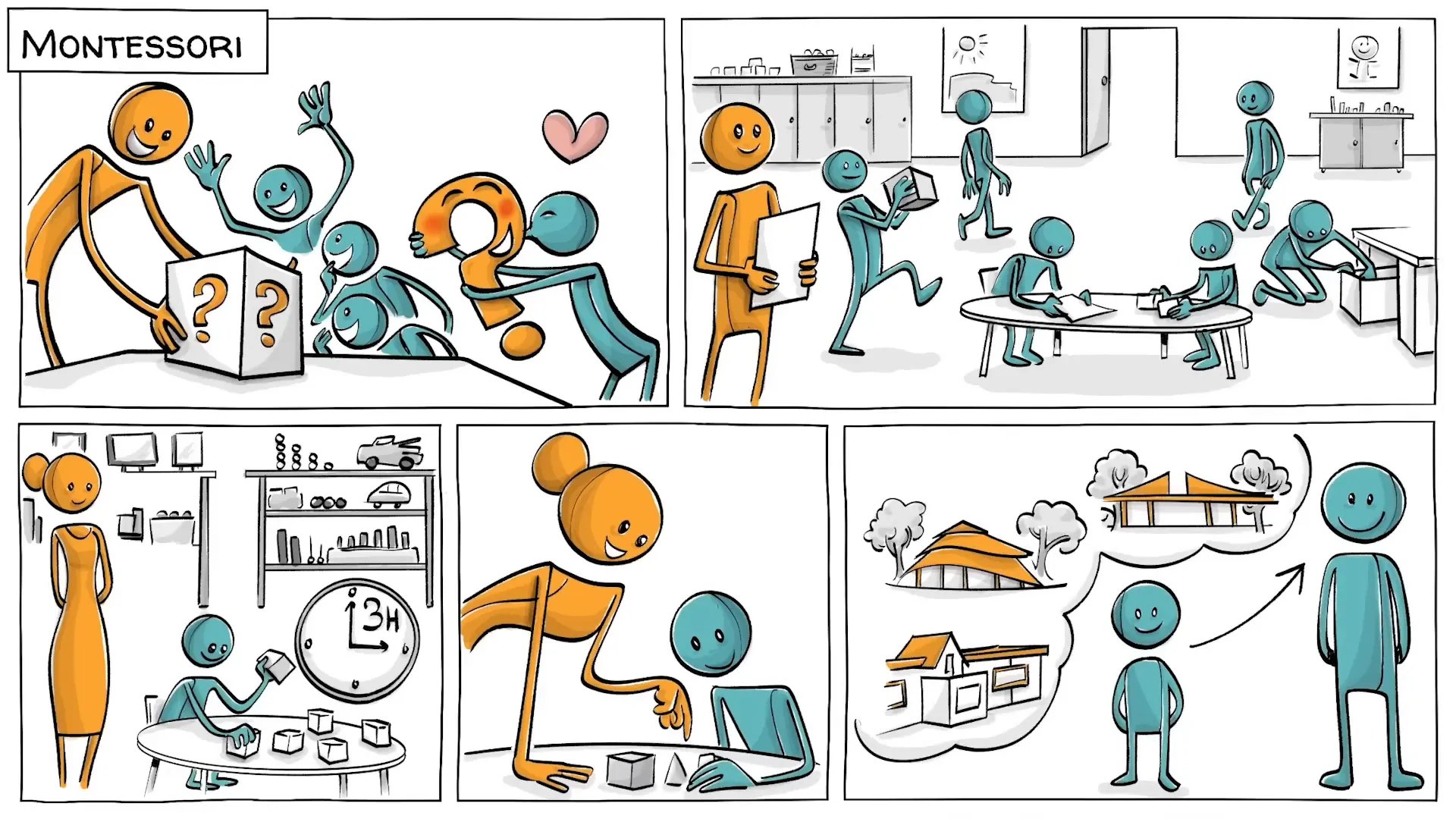
3. Art school
Art schools offer an educational approach for middle and high school students that blends traditional academic learning with music, dance, drama, and the arts in general. Basic curriculums often include collaborative projects. Advanced courses typically help the students contextualize their art within a broader professional landscape.
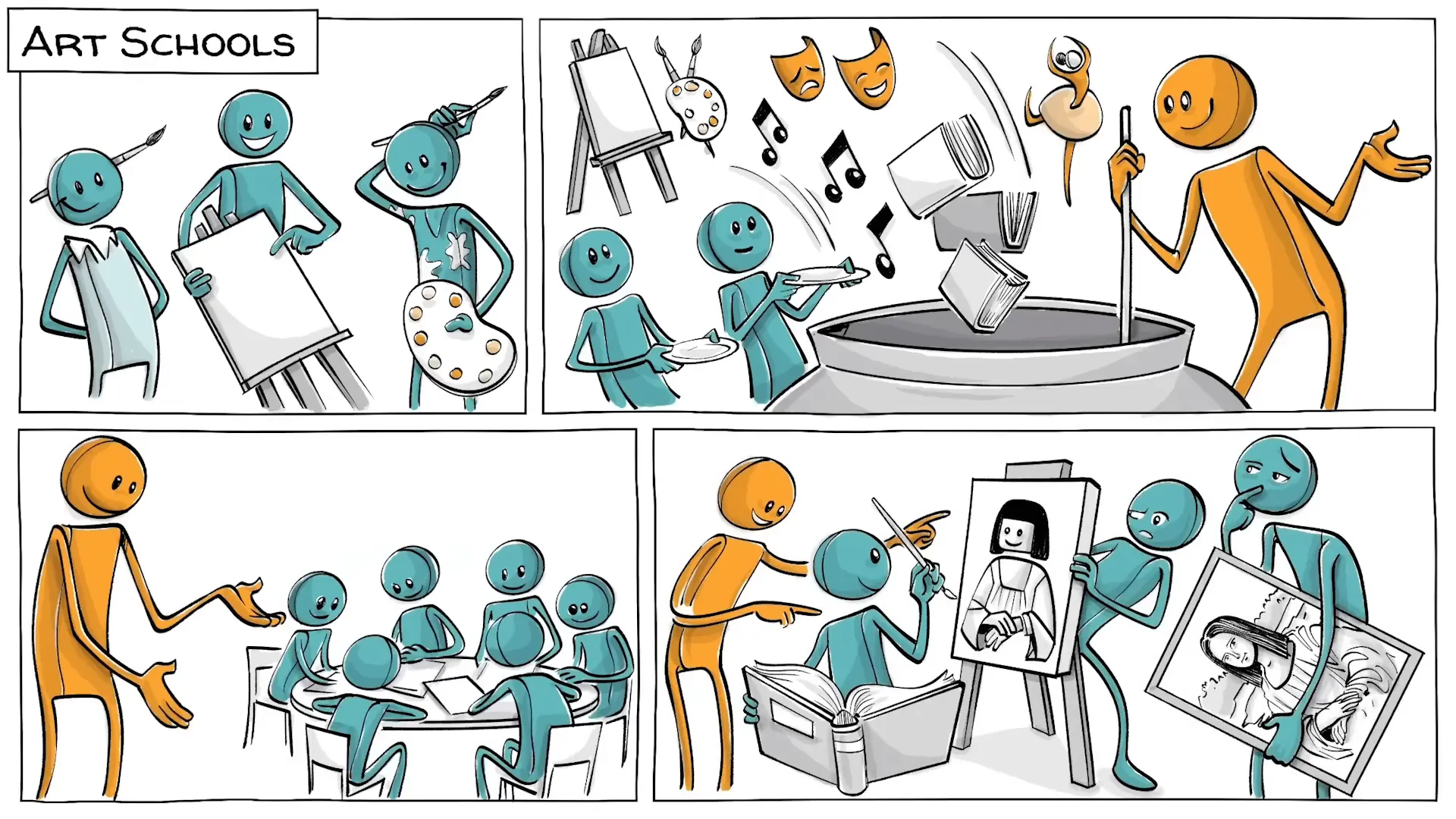
4. Democratic school
Democratic Schools allow students to have complete control over their education. Class attendance is voluntary and rules are made by popular vote—students and faculty usually each have one vote. In one famous British Democratic School, they even voted once to allow everyone to attend class completely nude.
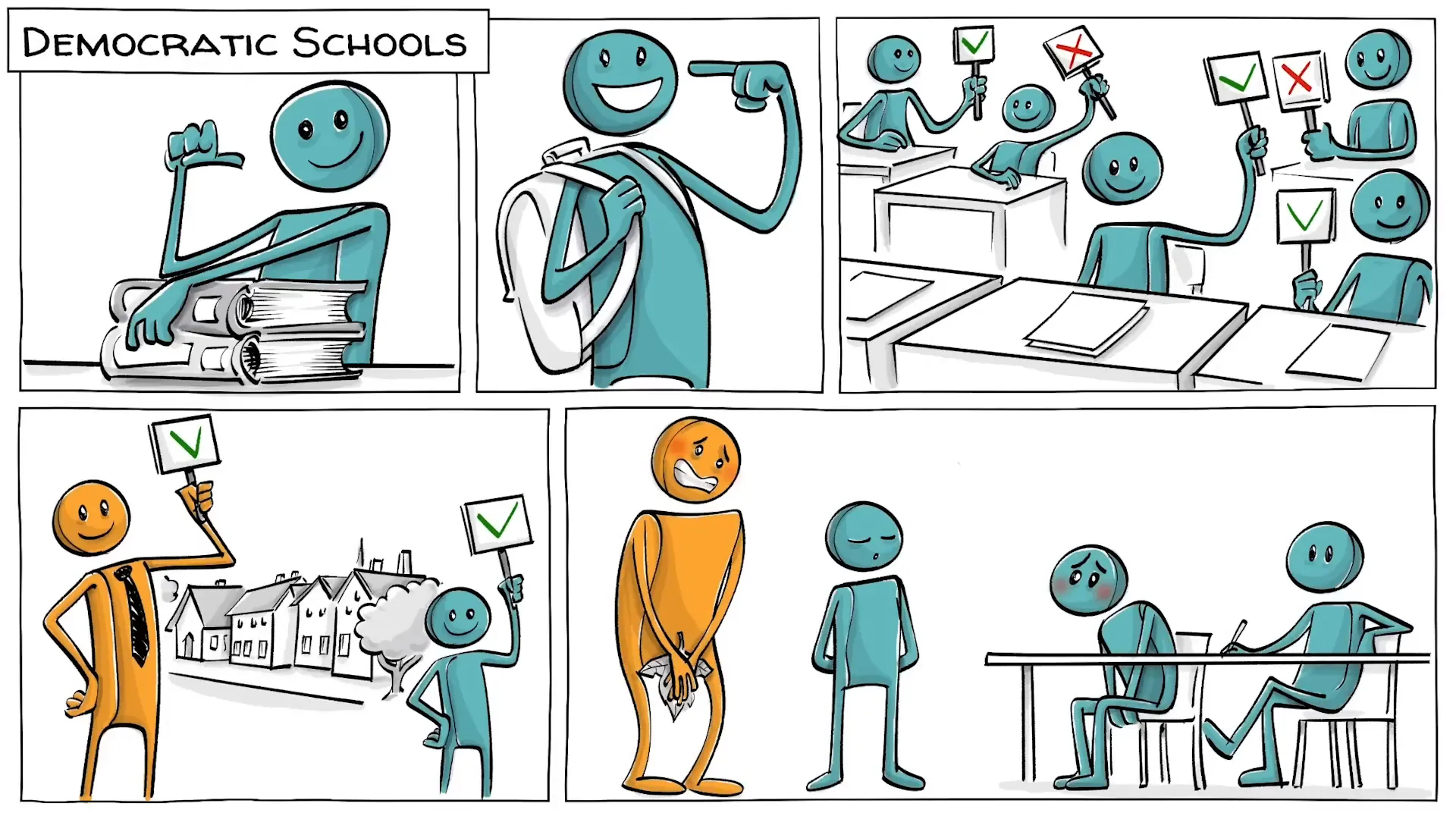
5. IB
The International Baccalaureate, or IB for short, is a globally recognized program that runs from kindergarten through high school and is known for its rigorous and holistic approach. The curriculum is highly structured and offers plenty of electives, encouraging students to ask themselves big questions: Who am I, what do I want in life, and how does the world work? Since most IB programs are offered by private international schools, they are often expensive.
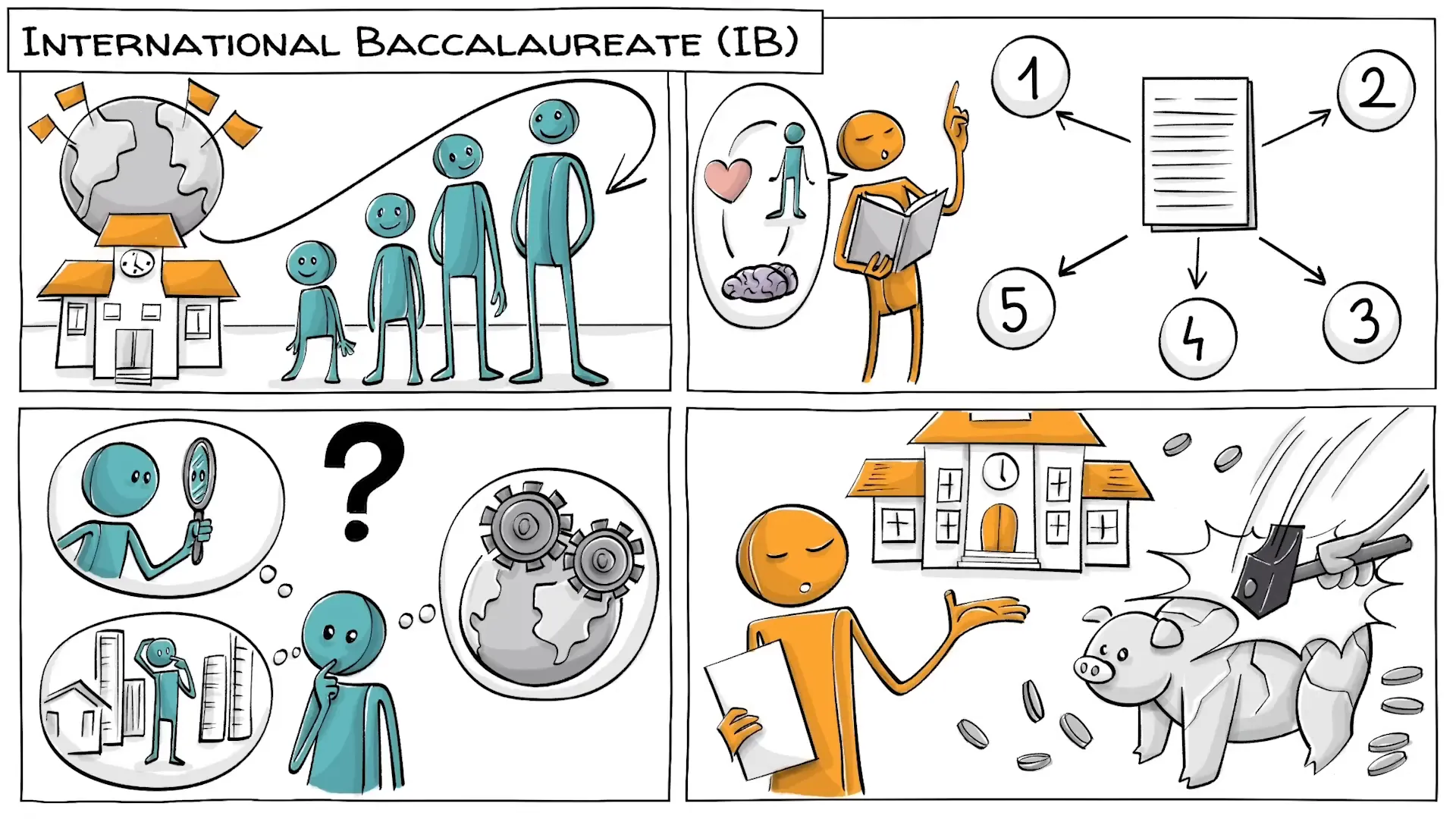
6. Waldorf school
Waldorf schools offer a community of learning that nurtures a holistic development of children. The approach integrates arts, academics, and hands-on activities, promoting a balanced growth of body and soul. Its structured curriculum ranges from kindergarten to high school and integrates projects like gardening, stage play, or internships. There are no grades until grade 9 and no competitions in general.
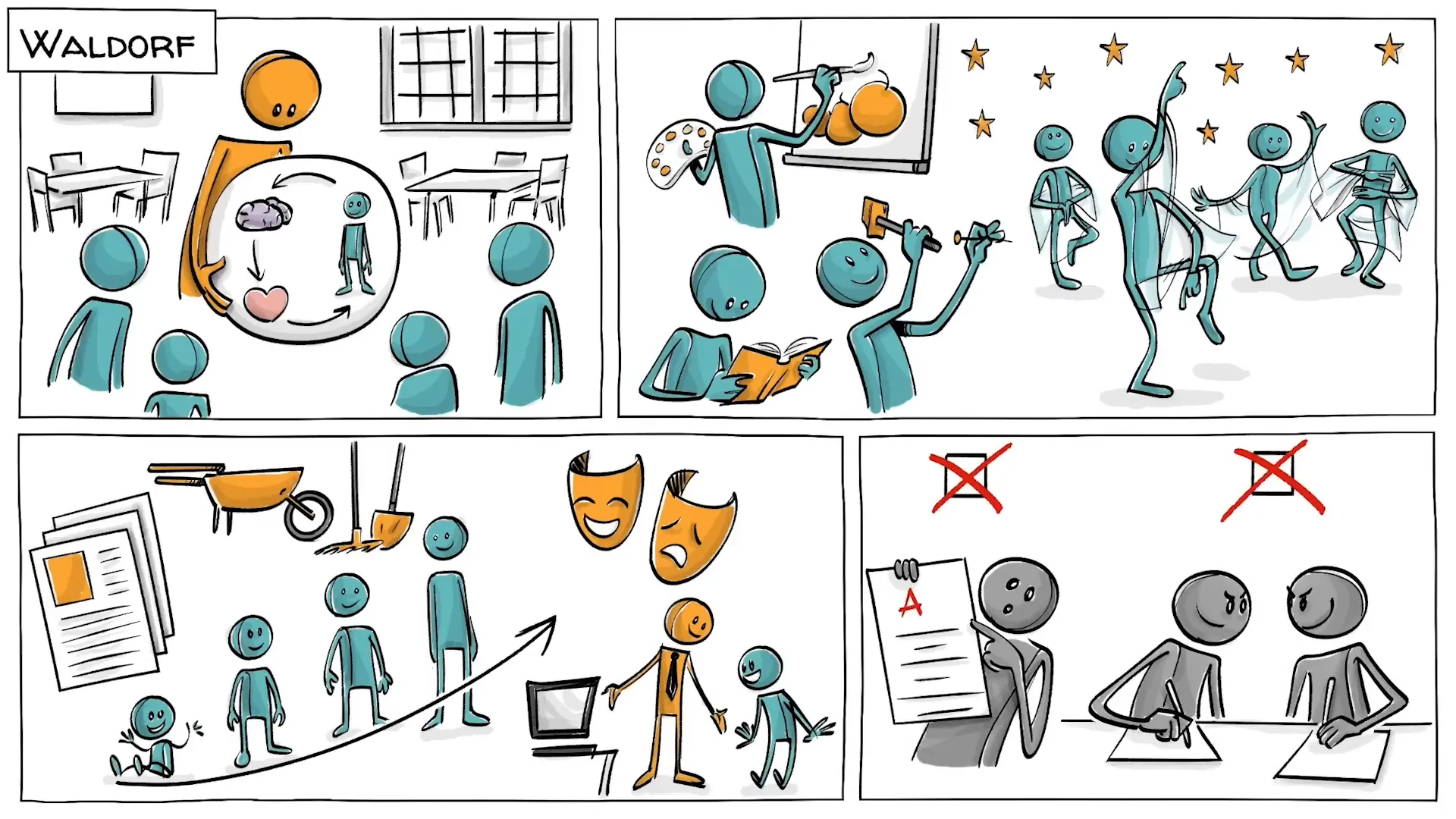
7. Microschools
Microschools are a new educational approach that was started by parents in the early 2000s. They are characterized by mixed-aged classrooms of less than 15 students, resembling the size of a large family or a dedicated team in a company. Some microschools follow traditional academic subjects. Others focus on practical life skills. Classes are usually led by a tutor.
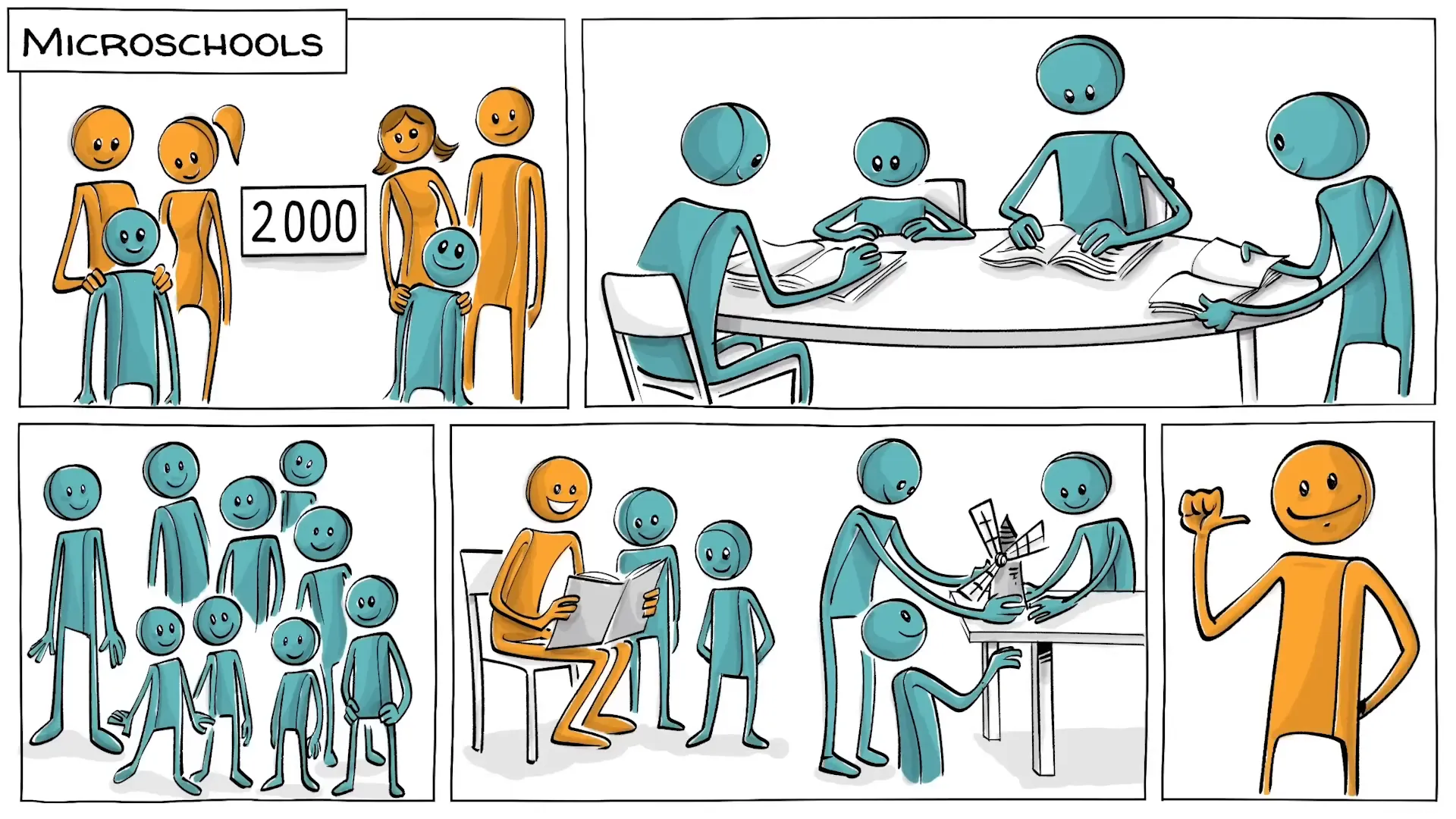
8. Reggio Emilia
Reggio Emilia is an education tailored to children, from 2 to 6 years old who learn through real-life experiences. The role of the teachers is not to instruct the children, but instead to assist, ensure safety, and provide tools or resources to help them in their own journey.
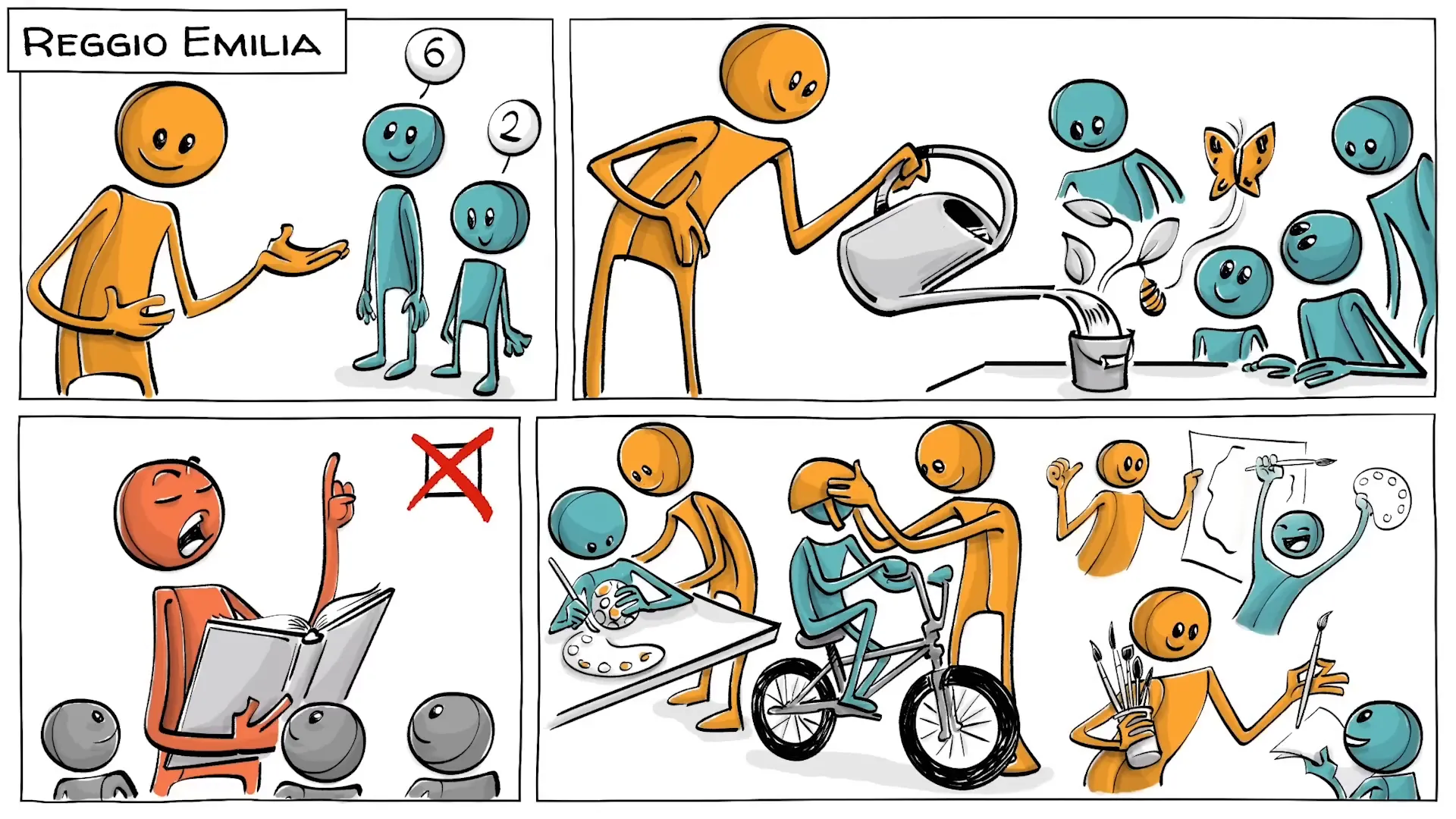
9. Technical school
Technical Schools offer young adults an educational experience that blends theoretical knowledge with real work application. Teachers are often professionals in their field, and when done right, students alternate classwork with on-the-job training at a real company. Those who learn at a technical school are usually ready to work in the field they were trained in, starting their professional life often earlier than others.
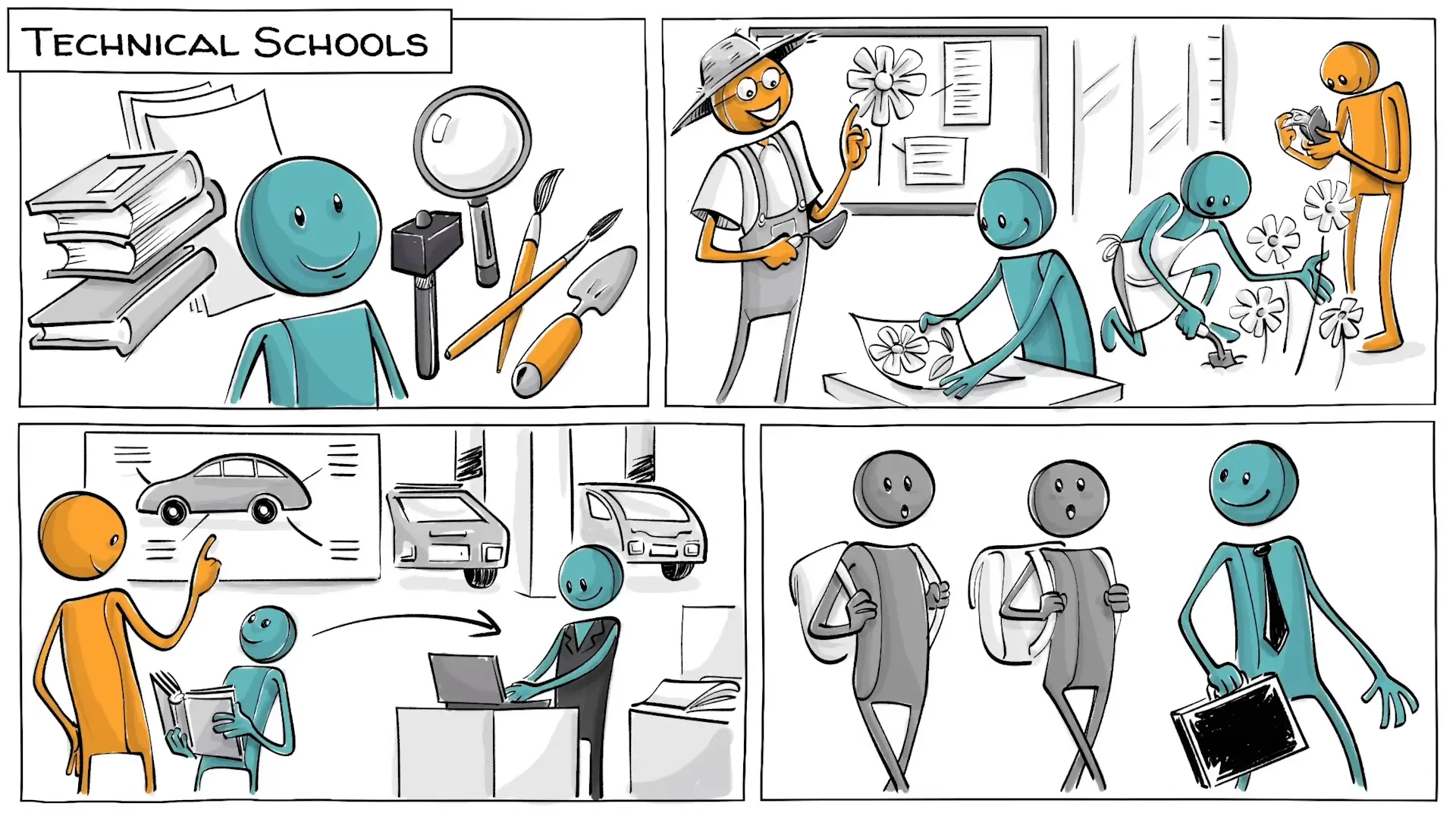
10. Online school
Online schools offer all sorts of courses to all sorts of students. While most focus on higher education, today even middle schoolers start to learn online. This is because children from places like Cambodia can get an accredited degree from an online high school in the UK. Online schools are especially good for families who homeschool or unschool, as they can offer an inexpensive alternative path to college.
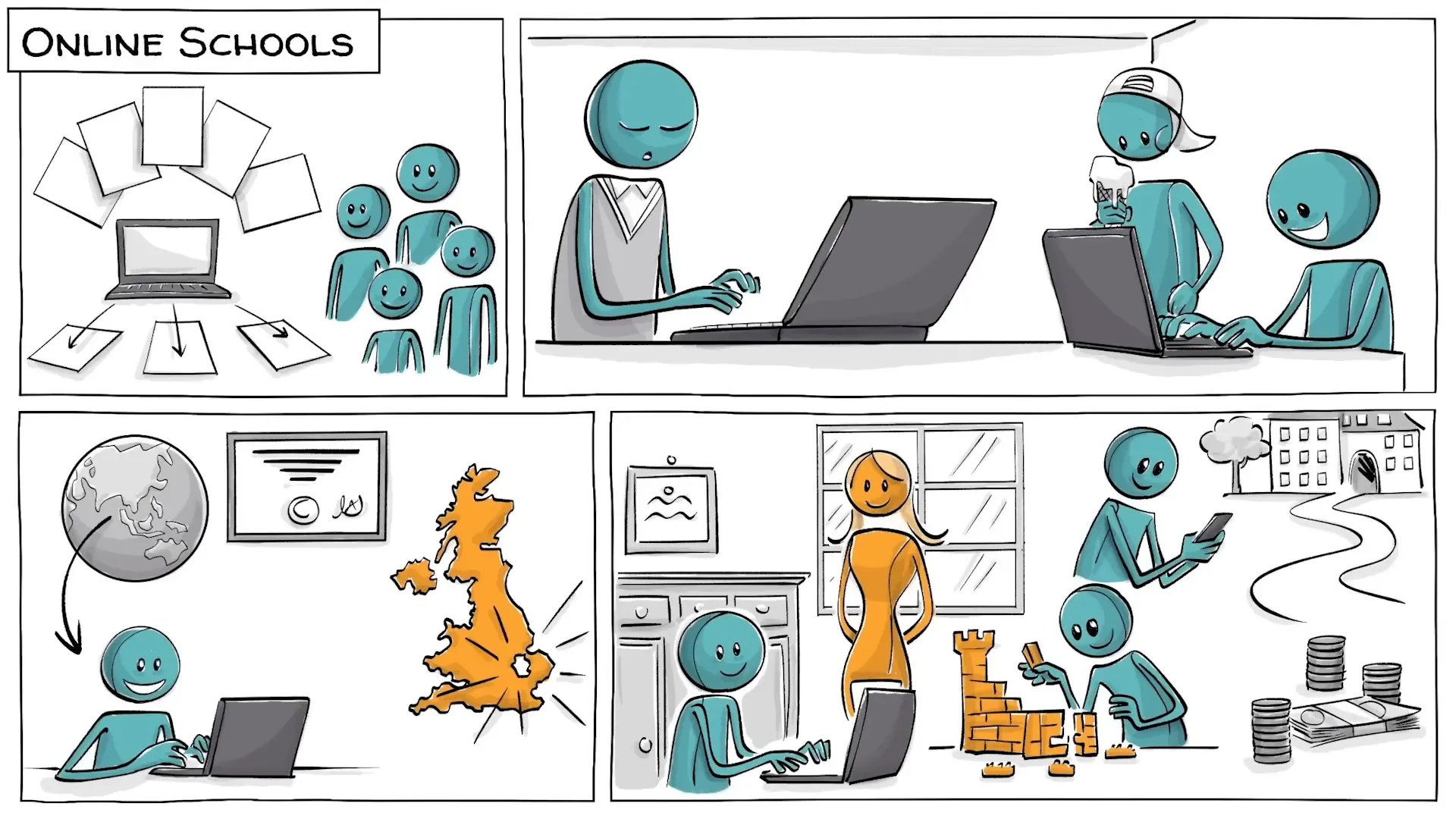

This article was created from the video 10 Innovative Schools Changing Education with the help of AI. It was reviewed and edited by a human.